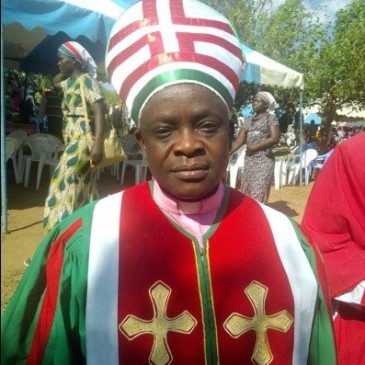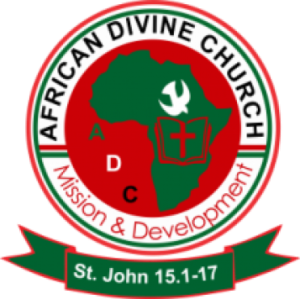
Rev. Saul Chabuga Chamwama was first ADC Bishop 1949 to 1970
Rev. Bishop James Chabuga was second ADC Bishop 1970 to 2005
The third Bishop John Lilege Saiya and first Archbishop of ADC was born in 1968. He has a diploma in Business administration and another in theology John took over office in 2005 after the death of his father. He launched first five year strategic plan 2009-2014 and second one of 2014 – 2019. The aim of this plan is to make sure that the objectives of the church are achieved within the stipulated time.
The name “African Divine Church” was picked from the book of John 15:1-17 in 1950 concerning the true vine. This is because, ADC is compared to the vine tree that grows and bears fruits. Similarly ADC is meant to grow geographically and bear fruits numerically.
The official ADC dressing is having three colours:
- White – the light of Christ.
- Red – the blood of Jesus.
- Green – the world in which we live.
Mandate and Purpose of African Divine Church
The mandate of ADC is derived from the Bible (Matthew 15:1-17) which concerns the true vine as explained earlier. The Purpose of ADC, as stipulated in the constitution, is; To function as a fellowship of Christians, professing, maintaining the Christian faith and life and Christian service to its members and harmony at large in accordance with the principles and practices of worldwide religion:
- The overall goal of ADC is to contribute, spiritual and economic empowerment of the members and the community for realization of a dignified life. The vision of the church is to be a responsible spiritual guided church that empowers its members spiritually and economically. The mission of the church is to preach, teach and spread the gospel.
ADC secretariat holds itself individually and collectively accountable for the promotion of an internal culture which defines their identity. In pursuit of ADC mission, vision and purpose, ADC is guided by the following core values which define the culture of the church:
1) Equality – that all are equal before God.
2) Peace including peaceful resolutions – live in harmony and solve conflicts the Christian way not taking each other to court.
3) Simplicity –interpret the gospel to be understood by all.
4) Honesty/truth – members to be truthful and faithful in their work.
5) Baptism – all members be baptized through water.
6) Love – treat each other as a brother and a sister through the love of God (agape), that is God’s love for human beings
7) Generosity – people to give themselves voluntarily for the work of God
